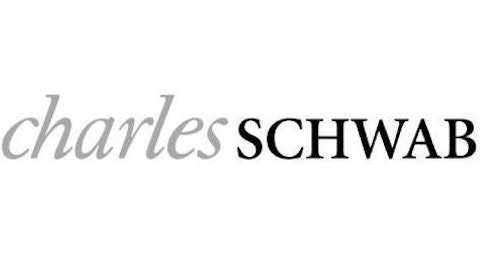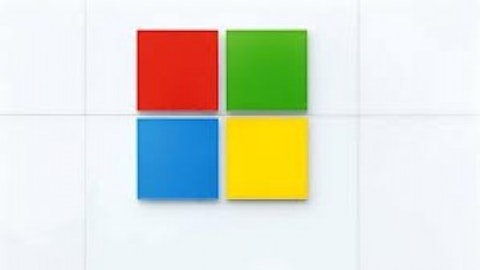 The notorious bank robber Willie Sutton said he robbed banks “because that’s where the money is.”
The notorious bank robber Willie Sutton said he robbed banks “because that’s where the money is.”
His words came to mind while I was thinking about which companies might benefit from rising interest rates. Certainly, banks have large cash balances, and for that reason, along with others — many of which were laid out recently by my colleague David Sterman — those institutions could be among the prime beneficiaries of soon-to-come higher interest rates.
I realized there are other pockets of hidden cash, less obvious than banks, that might benefit as much or more than banks when it comes to profiting from rising interest rates.
What other businesses have been sitting on huge sums of cash they can’t spend? Which companies have been forced to earn next to nothing in the form of interest — but should see a significant boost in their income streams as rates rise?
Two came to mind. The first category you probably do business with often — broker-dealers. They clear customer transactions, carry customer accounts and hold customers’ cash and securities.
The second below-the-radar group: payroll processors. These companies handle all paperwork, taxes and withholdings on paychecks, among other services. They hold the funds until the checks clear or are deposited in employees’ accounts.
In addition to fees for services, brokerages and payroll processors both earn interest on the float from client funds. Typically, these funds are invested to maximize interest income and minimize volatility, which means the majority of funds are invested in Treasurys and other government securities with a maximum maturity of 10 years. Most use a laddering strategy to extend the maturities of the investment portfolio and employ short-term financing to handle short-term funding requirements. This allows the companies to average their way through an interest rate cycle and reduce fluctuations in yield.
Laddering exposes the companies to interest rate risk as proceeds from maturing securities are reinvested. While higher yields translate directly to higher income, higher rates increase interest costs on short-term debt.
Overall, both industry sectors are cyclical — and both depend upon a healthy, improving economy to keep growing. If you believe a recovery in the U.S. is indeed underway and will continue for several years, then both these industry sectors should do well — brokerages as do-it-yourselfers join the ranks of investors, and payroll companies as companies start adding new jobs.
In addition to huge piles of cash, there needs to be a few other things to recommend a company. So I consider price-to-earnings (P/E) ratios, dividend yield and a few other metrics to compare among peers in search of bargains.
In looking at brokerages, it’s my opinion that Interactive Brokers Group, Inc. (NASDAQ:IBKR) is significantly undervalued compared to its peers, TD Ameritrade Holding Corp. (NYSE:AMTD), E TRADE Financial Corporation (NASDAQ:ETFC) and Charles Schwab Corp (NYSE:SCHW). Its share value is on the lower end of this range, although it was comparable a year ago. In addition, its P/E is low, and it has one of the lowest debt-to-equity ratios but the highest operating margin and dividend yield.
Interactive Brokers Group, Inc. (NASDAQ:IBKR)’s brokerage segment recently scored a record-breaking quarter with $123 million in pre-tax profit, a 37% increase from a year ago. The company’s pre-tax profit margin climbed to a new high of 58%, but this performance may have been obscured by the lackluster performance of Interactive’s market-making unit, which earned only $7.6 million.
Interactive Brokers Group, Inc. (NASDAQ:IBKR) has a unique growth strategy as it focuses on savvy active traders and investors. It is doing well in that respect, as its average monthly account growth for the first six months of this year is 2,400, outpacing last year’s monthly average of 1,700. No less an authority than Barron’s has rated Interactive at the top of its field two years in a row.
In contrast to the splashy world of online brokerages, payroll processing can be an overlooked industry. But with the labor market improving, companies need to process more employee data and paychecks than before.
Paychex’s stock has risen 17,000% since its debut in 1983. That might be hard to duplicate, but PAYX is up 16% over the past 12 months. What’s interesting is that share price growth has lagged behind its peer ADP.
Paychex and ADP are both strong and growing companies, with virtually identical P/E and no significant debt. However, PAYX has a higher dividend yield, higher operating margin and a lower entry price. Unlike ADP, Paychex has no European exposure, and that could be beneficial, considering the U.S. recovery appears to be happening more quickly than Europe’s. PAYX’s growth has lagged behind ADP’s this year, and that could offer investors an opportunity.
Like Interactive Brokers Group, Inc. (NASDAQ:IBKR), I think the current value of PAYX shares are a good value and a good entry point.
.png)
Risks to Consider: Willie Sutton had some other witticisms too, such as his reason for carrying a machine gun: “You can’t rob a bank on charm and personality.” Similarly, you can’t invest based on low debt and high payout ratios alone. Do your due diligence and consider what your goals are in investing and whether or not these stocks belong in your portfolio. Be aware of how much trading costs you, so that you don’t deprive yourself of the benefits of dollar-cost averaging.
Action to Take –> If you’re looking for solid financial stocks whose value has not grown as quickly as their peers and look like relative bargains – and also offer good dividends – you might consider IBKR and PAYX.
P.S. — Stocks like PAYX are perfect for what we call a “Dividend Trifecta” strategy. Simply put, it’s a three-part approach to dividends that multiplies the effectiveness of every dollar you invest. Click here to learn more…
– Bristol Voss
Warren Buffett’s Top 5 Stocks
Buffett’s firm, Berkshire Hathaway, holds dozens of stocks. But these five make up 75% of its portfolio… worth $65 billion. Click here to get Buffett’s top 5 stocks plus his 16 latest buys, FREE.

.JPG)



